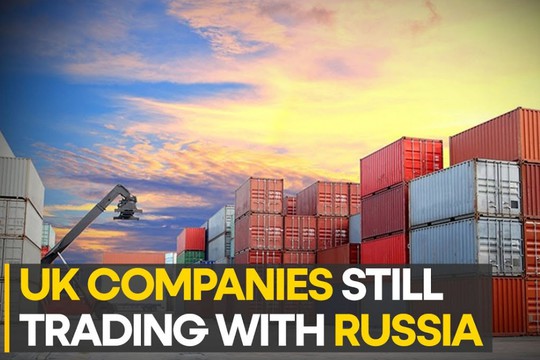A report by The Times said that the British government is continuing to allow several UK-based companies to export mining and fossil-fuel extraction equipment to Russia in such a way that the firms in question are circumventing sanctions.
One instance of these firms is the company Hill & Smith. In 2022, the company's financial report made no direct mention of customers or suppliers in Russia.
However, export data showed that one of its subsidiaries, Bergen Pipe Supports (India) Private Limited, continues to supply Russia's Arctic LNG 2 LLC with construction support for fixing gas pipelines.
For reference, the Arctic LNG 2 LLC is the second-largest liquefied natural gas production project of Russia’s largest independent natural gas producer, Novatek. Its projected annual capacity is 19.8 million tonnes of LNG.
The report pointed out that other UK-based companies may also be involved in the sales of materials and equipment to Russia.
Earlier in February this year, The Guardian reported that UK-based energy company Shell and energy trader Swiss-based Vitol were circumventing EU sanctions, purchasing Russian oil via Turkey.
In a letter sent by an economic advisor to the Ukrainian Presidency, Oleg Ustenko, to the new Shell chief executive, Wael Sawan, the former expressed that Shell had not breached any sanctions but purchasing oil commodities from Turkish refineries "awash" with Russian oil "flies in the face of Shell’s pledge to withdraw from its involvement in Russian crude oil and petroleum products, and exploits a loophole in the EU sanctions regime."
"If Western companies keep buying Russian-derived refined products, there will be no incentive for refineries around the world to stop importing Russian crude," he added.
While Shell reported record annual profits of £32bn earlier this month, Vitol has likewise reported record profits of $4.2 billion during the energy crisis.
"We call on Vitol to commit to a date by which it will honor its own pledge to cease trading Russian-origin oil products," the letter says.
In December, the EU imposed an embargo on Russian crude oil coming in by sea and agreed with its G7 partners to impose a price cap on Russian oil at $60 per barrel.
read more in our Telegram-channel https://t.me/The_International_Affairs

 11:24 01.08.2023 •
11:24 01.08.2023 •























